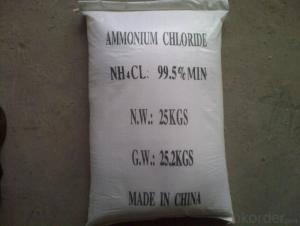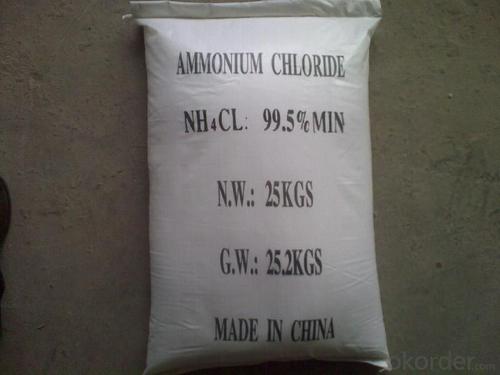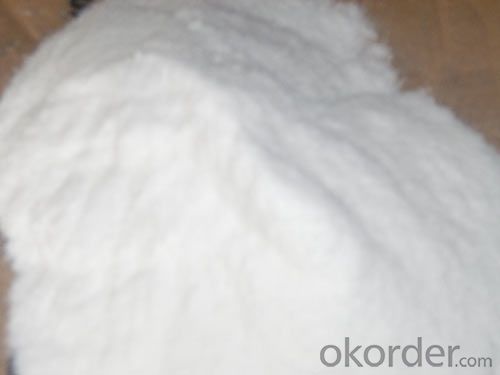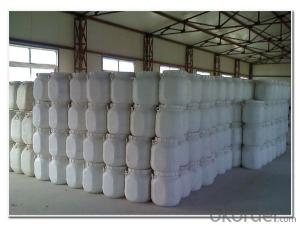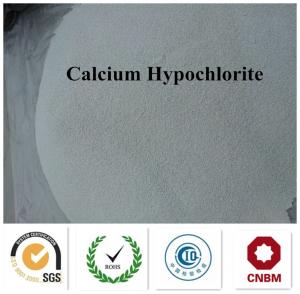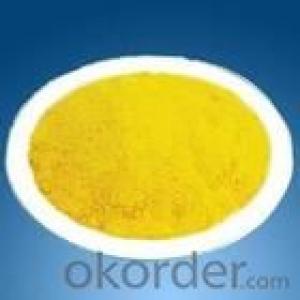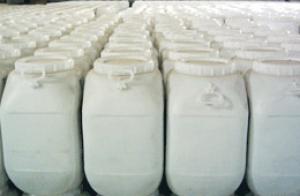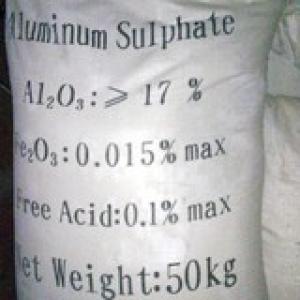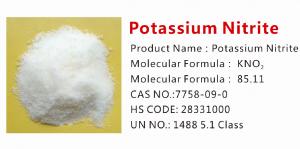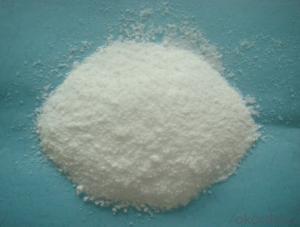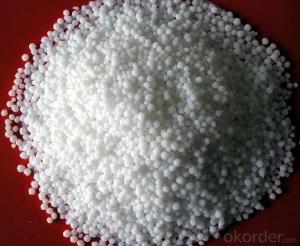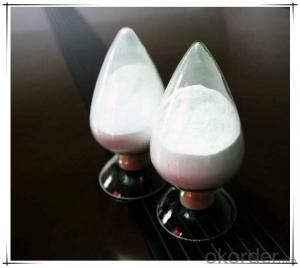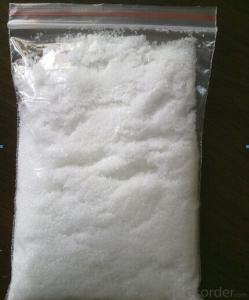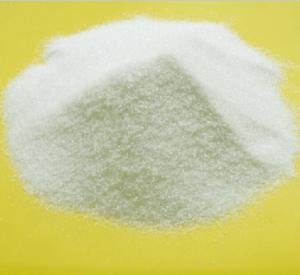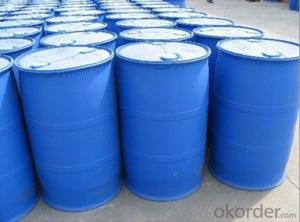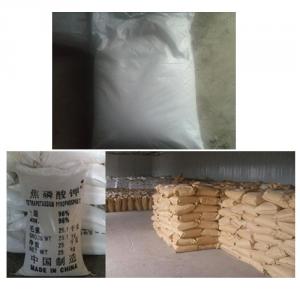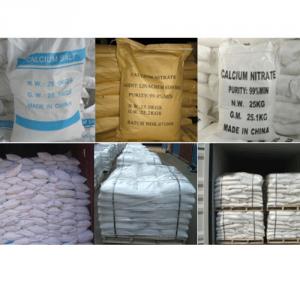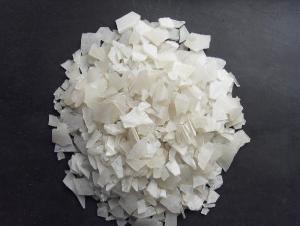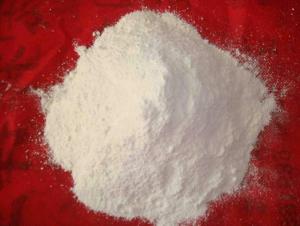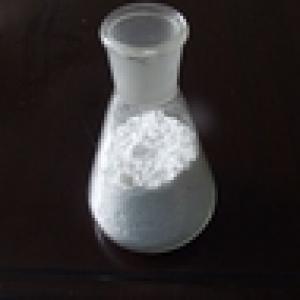Ammonium Chloride Inorganic Salt Construction Chemicals
- Loading Port:
- China main port
- Payment Terms:
- TT OR LC
- Min Order Qty:
- 1000 kg
- Supply Capability:
- 500000 kg/month
OKorder Service Pledge
OKorder Financial Service
You Might Also Like
Ammonium Chloride Inorganic Salt Construction Chemicals
Product Name: Ammonium Chloride
Molecular formula: NH4Cl
Molecular weight: 53.5
CAS NO.:12125-02-9
HS CODE: 28271090
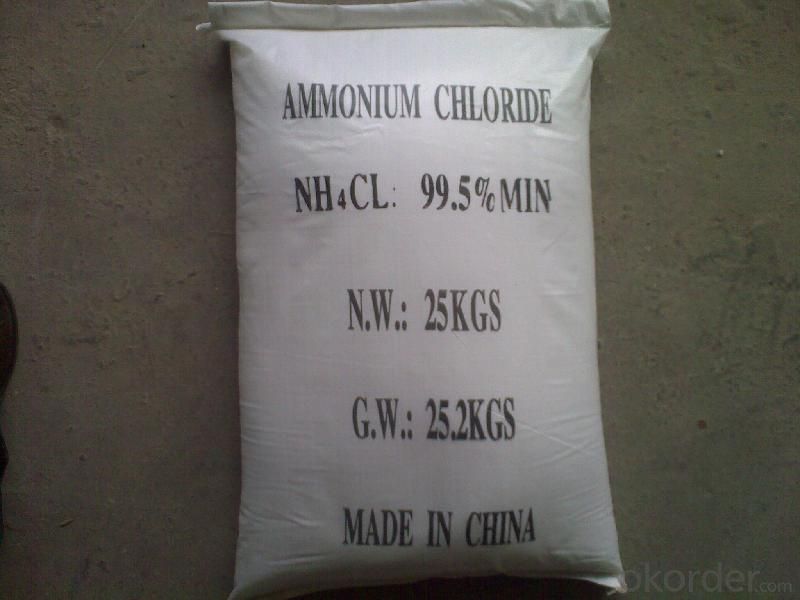
Properties and applications:
It is colorless Cubic crystal or powder,salt and cool taste.It cancorrode the
black metal and other metals.
USE:
1.Dry cell. used as electrolyte in zinc-carbon batteries.
2.Metalwork.as a flux in preparing metals to be tin coated, galvanized or soldered.
3.Other applications. Used to work on oil wells with clay swelling problems.Other uses
include in hair shampoo,in the glue that bonds plywood, and in cleaning products. In hair shampoo, it is used as a thickening agent in ammonium based surfactant systems, such as ammonium
lauryl sulfate. Ammonium chlorideis used in the textile and leather industry in dyeing,
tanning,textile printing and to luster cotton.
Agricultural Ammonium Chloride(NH4CL): GB2946-92
| Inspection ltem | Unit | Dry Ammonium Chloride | Wet Ammonium Chloride |
| Nitrogen | %>= | 25.4 | 23.5 |
| Moisture | %<=< span=""> | 1.0 | 7.0 |
Industrial Ammonium Chloride(NH4CL): GB2946-92
| Inspection ltem | Unit | Fine Grade | Feed Grade | First Grade | Qualified Grade |
| Assay | %>= | 99.5 | 99.5 | 99.3 | 99 |
| Moisture | %<=< span=""> | 0.7 | 0.5 | 1.0 | 1.0 |
| Iron | %<=< span=""> | 0.001 | 0.001 | 0.001 | 0.003 |
| Buring residue | %<=< span=""> | 0.4 | 0.4 | 0.4 | 0.4 |
| Heavy metal (as Pb) | %<=< span=""> | 0.0005 | 0.0005 | 0.0005 | 0.001 |
| As | %<=< span=""> | 0.0005 | |||
| Sulphates(as SO4) | %<=< span=""> | 0.02 | 0.02 | 0.02 | - |
| PH(200g/L solution,temperature 25°C)4.0-5.8 | |||||
Packing: In 25/50kg net PP/PE bag or the demanding of customer
FAQ
1.Q: What is MOQ?
A: Our MOQ is 1 TON.
2.Q: Could you offer free sample?
A: We can provide free samples to you for quality testing.
3.Q: What about your packing?
A: For liquid: Flexitank, or IBC tank 1000L
For powder:Woven fabric bag with plastic film liner( 25kg or 1000kg)
Clients’ packing is workable.
4.Q: How about your productive capacity?
A: 150000 tons/Year.
5.Q: What is your delivery time?
A: Within 7 days after received deposit or L/C at sight.
- Q: What to eat can promote the absorption of inorganic salts
- Transpiration on the absorption of inorganic salts has little effect, the book or which exercises on the image shows the problem
- Q: What is the physiological function of inorganic calcium
- Cells and organisms of the important components
- Q: Chemical formula The longest inorganic salt
- The longest can have a large number of atoms, I remember the teacher said is more than a hundred different atoms or groups
- Q: Definition of inorganic salts
- In addition to hydrogen, oxygen, nitrogen, carbon, sulfur, organic compounds other than organic compounds are collectively referred to as inorganic salts. The inorganic salts required by the human body, according to the content in the body, divided into essential elements (hydrogen, oxygen, nitrogen, , Magnesium, phosphorus, chlorine, potassium, sodium 11) in the human body content, the need for larger also known as macro elements of the source 2, the rest of the various elements, regardless of content, can be collectively referred to as inorganic salts. More elements such as iron, magnesium, potassium, sodium, phosphorus, sulfur, chlorine and other elements, other elements such as iron, copper, iodine, zinc, manganese, drilling, etc., due to the existence of a small number, and some even trace Known as trace elements, 3, what is the "inorganic salt", the body contains elements in addition to carbon, hydrogen, oxygen three elements mainly in the form of organic matter, the rest of the various elements are in the form of inorganic matter, collectively referred to as inorganic Salts such as calcium, magnesium, potassium, sodium, phosphorus, scratch, sulfur and the like
- Q: What is the difference between "organic salt" and "inorganic salt"? What is the difference between "organic salt" and "inorganic salt"?
- The biggest difference between inorganic salts and organic salts is the difference in their composition. And a large part of their chemical properties are determined by acid. For example, inorganic salts generally have a strong hydrophilic, and organic salts with some non-polar reagents have affinity.
- Q: would heterotrophic organism grow well in inorganic salt media? why or why not?
- No. Heterotrophs get energy from the environment in the form of chemical bonds within organic molecules (such as glucose). An inorganic salt medium would not supply the needed organic molecules. Your heterotroph would starve.
- Q: what percent of dissolved salts found in seawater are minor inorganic salts, or trace?
- Seawater varies in composition a little but generally is about 3.5% salts. Of this about 3.1% is sodium chloride. So the remaining 0.4% is the other salts (Magnesium, Calcium and Potassium mostly, followed by just about every natural element in the periodic table in trace amounts)
- Q: What is the use of inorganic salts in plants? How is it discharged
- Plants need inorganic salts, just as people need trace elements, the growth of auxiliary organisms can be through the leaves of the surface of the pores, with the water discharged together
- Q: People lack the inorganic salt will be what disease
- Calcium deficiency can lead to osteomalacia, osteoporosis, etc., can also lead to convulsions.
- Q: And what I specifically need are salts with Bromide, Chloride, Phospate and Carbonate ions.Thanks for any help.
- That list is near endless. There are countless inorganic cations and organic groups that can combine with these ions. Pretty much every metallic element in the periodic table will form cations with bromide and chloride. Not sure about phosphate, but most metals will bind with it. Carbonate will be trickier, as some ions are too acidic and will decompose the carbonate (iron(III) is an example, and it will form the oxide instead, liberating CO2 in the process). Aside from simple elemental ions, there are also polyatomic cations (such as ammonium) and lots of complexes that will form compounds with these anions.
Send your message to us
Ammonium Chloride Inorganic Salt Construction Chemicals
- Loading Port:
- China main port
- Payment Terms:
- TT OR LC
- Min Order Qty:
- 1000 kg
- Supply Capability:
- 500000 kg/month
OKorder Service Pledge
OKorder Financial Service
Similar products
Hot products
Hot Searches
Related keywords
